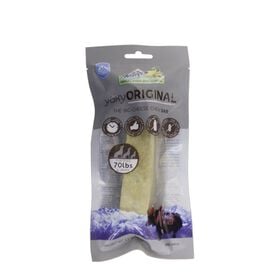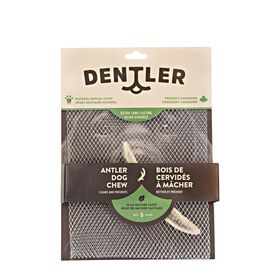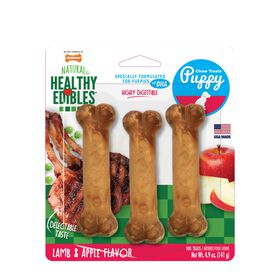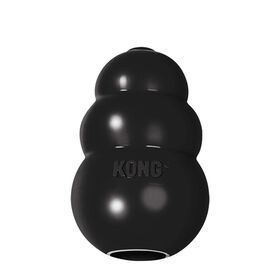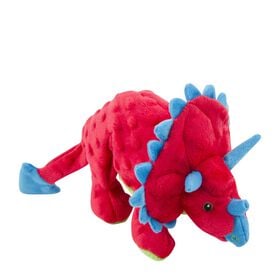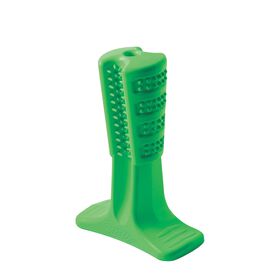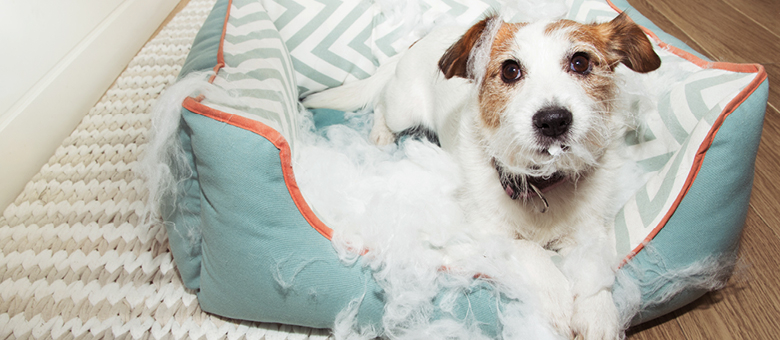
What are the best ways to manage a destructive dog?
Published November 22, 2019.

Isabelle Borremans
Dog trainer and behavior consultant
There’s nothing worrisome about a dog that enjoys chewing on its toys, even if it destroys one or two from time to time. However, for some dogs, this type of behaviour can quickly get out of hand. The following are a few tips to help you better understand your dog’s needs.
How can I know if my dog is normal?
First, it’s important to consult your veterinarian if you think your dog is abnormally destructive. There is a condition known as pica where a dog will eat what it destroys. This can be very dangerous if the dog ingests non-food items, often requiring emergency surgery to remove a foreign body.
Understanding a dog’s need to chew
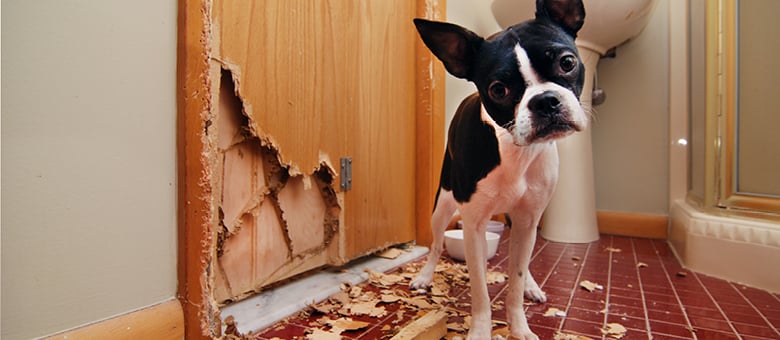
All dogs, without exception, need a chewing activity. If this need is not adequately met, the animal will behave destructively toward its toys and everyday items around the house (e.g., clothes, walls, tissues, plastic).
It’s also good to know that some types of dogs, such as terriers, retrievers and bulldogs, are more likely to be destructive. However, all purebred and mixed-breed dogs can demonstrate a greater than normal chewing need.
Why is my dog destructive?
A dog that demonstrates highly destructive behaviour may be expressing boredom. That is the case 80% of the time, which is an incredibly high percentage! It is therefore vital that dog owners stimulate and occupy their pets on a daily basis.
You may notice that your dog is prone to destroy objects when it’s anxious. Your absence, thunderstorms or other specific events can be the cause. In such cases, destructive behaviour is only a symptom of a more serious problem. Make sure you discuss the matter with your veterinarian and get a referral to an appropriate animal behaviour specialist.
Redirecting your dog’s behaviour
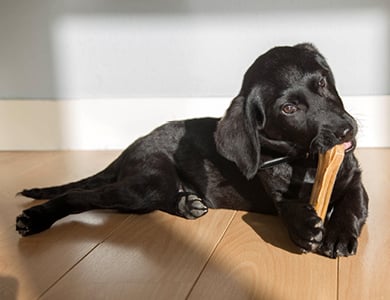
Regardless of your dog’s age, it is vital that you redirect its destructive behaviour by satisfying its chewing need. Some dogs are happy with a dental chew for less than an hour. Others need several hours of daily chewing to keep from destroying other objects around the house.
The important thing is to find a routine that works for your pet. You can give your dog a dental chew. A Kong-type toy is also very effective because you can fill it with your dog’s food and place it in the freezer to make the pleasure last longer. This type of toy is solid, and you can find the one that best suits your dog based its age and size.
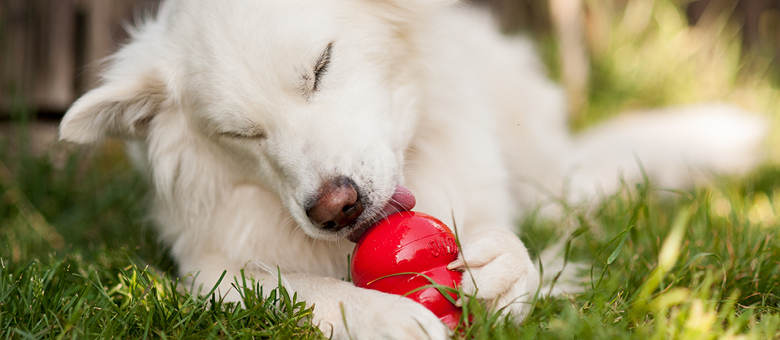
All toys can be destroyed
Are you still in search of the indestructible toy? Unfortunately, there’s no such thing. Some dogs even tear into walls and destroy wooden decks. Instead of leaving your dog alone to play with a toy, you can train it to chew in a controlled manner.
It’s important to teach your dog a few words to help manage its destructive tendencies. For example, when you play tug with your dog, you can teach it the following words:
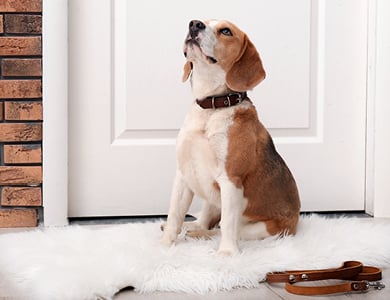
- “Take”: Encourage your dog to take its toys. If your dog tends to destroy its toys, keep them stored and take them out only when you’re around to supervise. By encouraging dogs to take their toys, you prevent them from taking what does not belong to them.
- “Let go”: Letting go of a toy requires a great deal of self-control for your pet. You can help by holding the end of a big enough toy and waiting until the dog drops it, while avoiding pulling on the toy. The dog will get bored and let go. At the same time, say “let go” and reward the dog by giving back the toy to play tug. Repeat.
- “Shake”: You can say the word “shake” when your dog performs the action of shaking. If you encourage this action, your dog will be less likely to destroy the toy by pulling on it.
“Gentle”: When your dog wants to take something in its mouth, say “gentle” just before and, if the dog approaches gently, give it the toy. You can also practise “gentle” with the dog’s kibble.
Dogs’ destructive behaviour must be correctly managed from the outset. Sometimes, in the case of a puppy, the behaviour may subside with time. However, keep in mind that dogs grow quickly. Consult a competent dog trainer to avoid damage.
